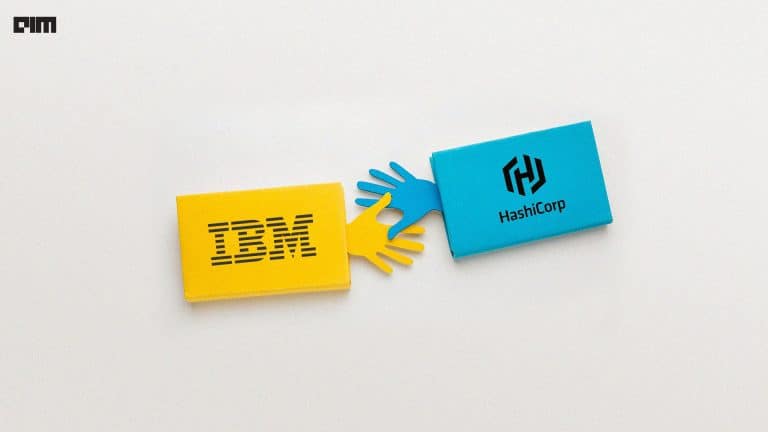|
Listen to this story
|
In an era where companies are amassing vast troves of customer data, both online and offline, the challenge lies in effectively harnessing its potential.
As projected by International Data Corporation (IDC), the global data landscape is set to undergo a monumental transformation by 2025, witnessing a tenfold surge from 2012, soaring from 6.5 zettabytes to an astounding 64.5 zettabytes. This vast amount of information represents a considerable repository of untapped value.
Consequently, businesses are exploring novel avenues to engage with consumers, generating first- and zero-party data—information characterised by precision and resilience against data erosion. Amidst this vast landscape of data, encompassing various formats like images, videos, and audio recordings, lies a potential reservoir. Effectively re-imagining this reservoir of data and utilising it to scope necessitates strategic vision, technological infrastructure, and proficient skills for data processing.
Further, we will delve into three specific applications that caption the effective re-imagination of data. These applications showcase innovative and transformative approaches that have the potential to significantly enhance customer experience through personalization.
The scope of Retail Media Networks
The advent of Retail Media Networks (RMNs) introduces promising avenues for both retailers and brands in this pursuit. RMNs offer opportunities to unearth fresh streams of revenue and insights, aligning with the goal of enhancing CX and driving business success.
The scope of RMNs encompasses not only advertising, but also the strategic monetization of first-party data, valuable insights, and innovative out-of-home or in-store strategies that were previously confined to retailer merchant organisations only.
Expected to reach $160 billion in global annual revenue by 2027, (according to Group M’s 2022 TYNY forecast) Retail Media itself is an enticing proposition for businesses the world over. So, through RMNs, retailers and suppliers can gain access to real-time insights that translate to consumer preferences.
These insights empower them to deepen their connection with customers, shape their strategies, and close the loop from advertising impressions to sales.
Another intriguing aspect is that brands are not limited to advertising solely through retailers that sell their products. RMNs have gained significant traction among non-endemic brands, such as fashion brands partnering with beauty retailers or travel agencies collaborating with theme park entities.
This transformative shift in the RMN landscape involves the separation of media and data functionalities, providing brands with unprecedented access to essential first-party data insights, free from the constraints of media transactions.
According to Merkle’s latest Retail Media Research Report, a remarkable 65% of surveyed retailers attest that offering insights independent of media transactions strengthens their vendor relationships, marking a 13% increase from 2021.
Concurrently, brands are eagerly seeking access to profound insights within a privacy-conscious and contextually relevant environment that fosters customer engagement and loyalty.
Elevating brand loyalty through zero-party data
Brand loyalty is often elusive to achieve in today’s competitive landscape. Under these circumstances, the utilisation of zero-party data, willingly shared by customers, is proving to be a game-changer. However, this should be viewed with a lens that helps brands create profound emotional connections that nurture enduring loyalty.
Recognizing that emotional bonds are the driving force behind loyalty, this evolution emphasizes shared values, transparency, trust, and open dialogue, all of which are fundamental to delivering a superior CX.
Zero-party data transcends the limitations of demographics and behaviours.
Consider the case of a tech-savvy 28-year-old professional from San Francisco who displays a keen interest in your offerings. While such insights offer a glimpse into preferences and aspirations, they represent just a fraction of the whole picture.
Continuous engagement through surveys and social media, and website interactions allows customers to express their sentiments. This enables brands to adapt and personalize their offerings.
When customers provide zero-party data, they are entrusting brands and retailers with personal information in exchange for some form of value. Therefore, the most creative and targeted uses of zero-party data are those that provide value based on the specific information customers willingly provide.
Loyalty programs emerge as a natural and effective avenue for brands and retailers to achieve this. Consider an athletic apparel retailer that conducts surveys to understand what sport customers play or the types of fitness activities they engage in.
Armed with this knowledge, the retailer can do more than simply send promotions related to the appropriate attire. They can deliver sport-specific content and even collaborate with local event organisers to inform customers about opportunities to get involved in their interests, all while wearing their favourite fitness apparel.
In essence, zero-party data serves as the foundation for brands and retailers to not only understand their customers on a deeper level but also to offer highly personalized and valuable experiences in an increasingly privacy-conscious milieu. The seamless integration of zero-party data into a comprehensive data strategy can therefore greatly magnify CX enhancement, enriching the customer journey with each data facet. Furthermore, inventive ways of utilizing existing data and insights can complement this approach.
Identity resolution: A synergy of data and insights
Identity resolution platforms use existing data and harmonize it with second and third-party data sources, to weave a cohesive, cookie-less private identity graph. This intricate web empowers businesses with cross-channel targeting precision, catalysing personalised marketing initiatives, and facilitates accurate measurement of outcomes.
In a noteworthy case study with a major US media conglomerate, their effort to achieve seamless personalisation across diverse brands through a unified marketing solution proved extraordinarily successful. This effort merged data from 30 sources, resulting in the synthesis of over 2,000 consumer attributes.
The use of a proprietary identity resolution platform enhanced consumer experiences and provided valuable insights for advertisers as well. Advertisers benefited from the improved accuracy in predicting age and gender, reducing reliance on third-party data by 100%.
For consumers, it led to a high success rate (80%) in anticipating the next optimal action, especially in product recommendations. For this innovative solution, the Merkle team recently received the “Excellence in AI Strategy Consulting Award” at Cypher 2023.
Conclusion: The future is personal
As data burgeons exponentially, reimagining its potential is no longer an option, but a necessity. The vast volume, diversity, and complexity of today’s data offer an extraordinary opportunity and challenge. Enterprises that effectively harness this and apply innovative approaches stand to benefit from the customer engagement landscape.
The future of CX is as such profoundly personalized and insights-driven. An intimate understanding of individual preferences will characterize every interaction. Customers are no longer data points but valued individuals whose experiences demand to be meticulously tailored.
The key to unlocking this lies in strategic data utilisation, not just collecting more but extracting actionable insights. Therefore, fine tuning existing solutions like RMNs, and refocusing on zero-party data insights coupled with identity resolution platforms can produce outcomes that are future-ready and hyper-personal.













